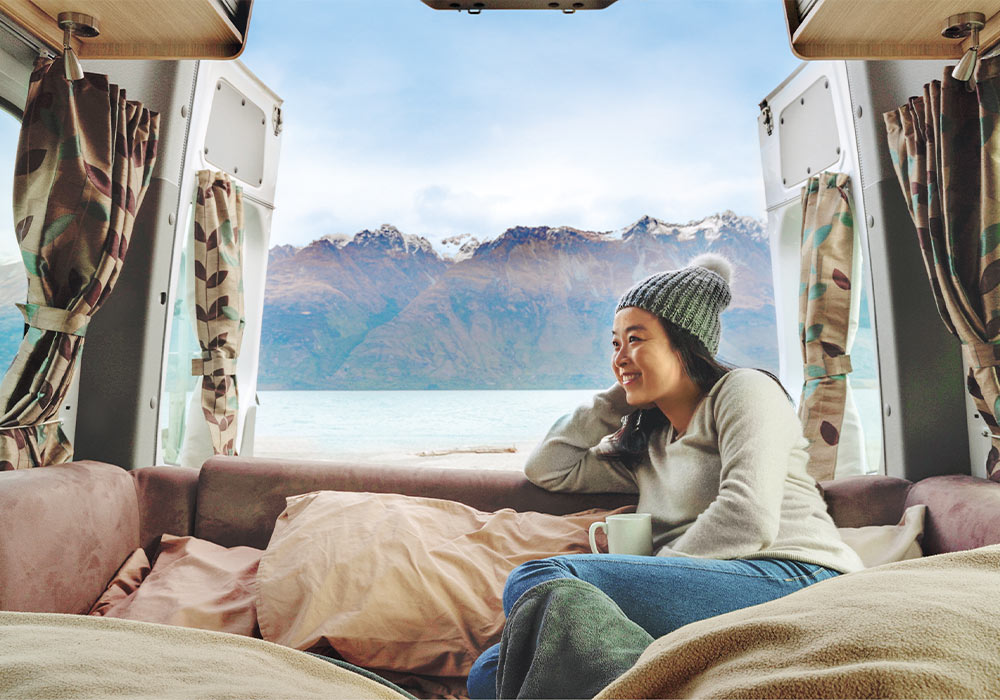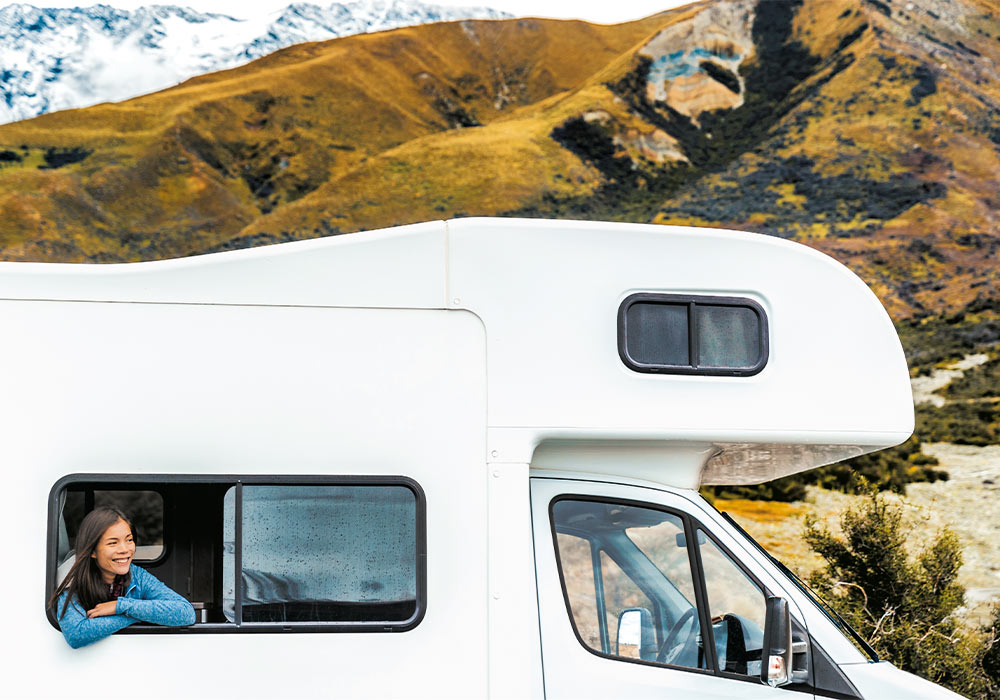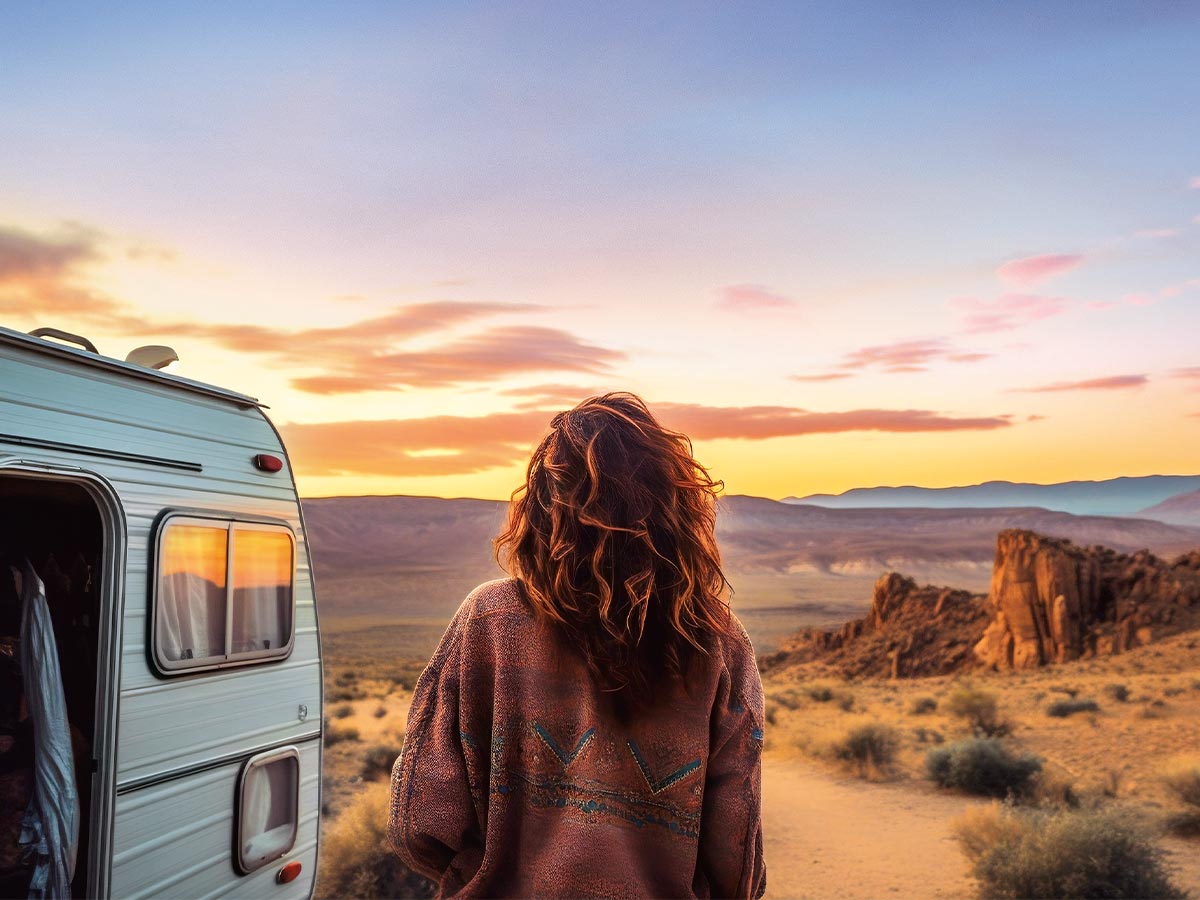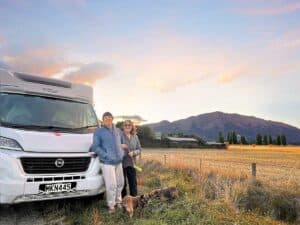What’s stopping more women from buying an RV, and what happens when they overcome their fears and do it anyway? Peta Stavelli canvasses 18,500 road-hardy women about their concerns and triumphs.
Everyone in the RV community benefits from getting more women on the road. It’s a simple equation: the greater the size of the group, the greater the opportunities become for all the members of it, be that better business opportunities, greater buying power, personal growth, or for extending the power of lobbying.
Women in RVs
I have some insight into the world of women who are thinking about buying an RV: their hopes, dreams, and, yes, their fears, because in 2016, I started a Facebook group for women in RVs. Funnily enough, and call me unimaginative if you like, I called it Women in RVs.
At the time of starting the group, I was writing a feature about the myth of the female driver. You know the one – it’s the much-repeated line about women being bad drivers. At the time, I had just read a story about a British insurance company, which was giving women reduced-cost premiums because an extensive and detailed survey had discovered that they were, in fact, better drivers than men – across the board. Well, in the interests of factual feature writing, there was one measure in which they performed worse than men. Apparently, women execute roundabouts at slower speeds than men, and this was considered a fault. Even so, the fact that women are mostly better drivers than men is still not widely known. And sometimes women themselves are perpetuating the myth because they remain unsure if they can tow a caravan or drive a large motorhome.
Well, let me tell you from my own experience, and from that of many others, you can do it.
Setting out

At the outset, it had been intended that the Women in RVs Facebook group was for Kiwi women, but to my great surprise, the majority of members (there are 18,500 of them) are North American – mostly from the US (17,000+), followed by Canada, Australia, the UK, and New Zealand. Well, it’s called the world-wide-web, I suppose. And while there are cultural differences, some things remain universal. The group is 100% female, 0% male. This was intentional. I wanted women to feel safe and to allow them to speak freely about their fears, but mostly, I wanted women to support other women to become more adventurous and skilled so they could get more from their RV travels.
Membership is curated and not all applicants are accepted. Many applicants are looking to promote a business or service, and commerce is generally dissuaded, although, members can sell their own RVs or RV equipment. Kindness and courtesy to others is expected. By taking a little extra care with membership, I’ve found we rarely have a problem, and members often say it’s the best and most supportive group they have been part of.
Girl talk
These girls blow me away. Just in the past few days, I’ve had someone replacing the roof membrane on their motorhome and another fixing their air conditioner. A growing number of members are RV technicians and they’re helpful with offering advice and support. Others have taught themselves how to do almost everything by watching YouTube videos. Some buy an old vehicle and do it all from scratch, replacing panels, tables, chairs, cupboards, and beds. Some newbies ask a lot of questions before they begin their journey; others want to learn about the best satellite dishes, tyre gauges, or about the best remote internet providers. Personal safety is always a hot topic, as is travelling with dogs. Some members express concerns about learning to back their caravan or trailer. There’s always a flurry of helpful advice and encouragement when they do.
Age is no barrier

Thirty-five percent of our members are 55–64, while 30% are over 65 and 20% sit in the 45–54 age group. Some are married, others are widowed, recently divorced, or empty nesters setting out on their own for the first time. Some are just stepping up to take their share of the driving for the first time or want to take the family RV out, perhaps during the school holidays, or with a sibling or family member, instead of their partner.
Jane spoke for many in the group when she said, “In the beginning, I wasn’t sure I could do it. But I was determined. I read up on how to do things, watched YouTube, made checklists, and practised backing. I’ve done three trips across the US by myself. The thrill of going down the road and seeing the sights is immeasurable. I’ve learned to take my time, be aware, and trust my gut.”
Some universal concerns
Some concerns for women RV’ers are perennial, and the largest of them for anyone wanting to spend time on the road seems to be money. Wear and tear on your vehicle is inevitable and replacement parts are costly. New tyres will eventually be needed no matter what type of vehicle you’re driving. Vehicle inspections must be done annually and breakdowns do occur… the list goes on. Then there’s the cost of fuel and campgrounds. If money is tight before you set out, be sure not to convince yourself that your expenses when you’re on the road will be much the same as they are at home.Another major concern for many women considering RV travel is personal safety. There are many ways to make yourself safe on the road. Ensure someone knows where you are at all times, but be careful who you share that information with, especially online. Park up where there are others around, and if it doesn’t feel right for some reason, trust your gut instincts and find somewhere else to stay. Travelling independently within a group is also a good way to go.
As an aside, one thing I’ve enjoyed seeing grow from the group is the number of women buying land to offer as park over places or for small-serviced campgrounds solely for other women.
Getting past your own limitations

If you’re looking to buy a new or second-hand RV, the first thing is to buy from a trusted retailer or individual. If you’re not sure, consider using an RV broker to act on your behalf.
Remember, that all of us begin with fear and trepidation when we start out on a new adventure. I used to feel like I’d fall apart with nerves when I began testing new motorhomes. These were often brand-new with just delivery miles on the clock, and I was afraid I’d scratch them – or worse.
In fact, there’s only ever been minor damage to a wing mirror of a test RV, and I was not at the wheel at the time. From experience, I can assure you that you won’t be driving for long when you suddenly realise you’re handling your RV in the same way as you used to drive the family car. This is also true for learning to reverse a caravan or trailer. Ask someone patient to teach you or pay for tuition. And don’t forget YouTube. It really is a treasure trove for content on how to do almost anything.
The other thing that seems to scare all newcomers is learning to read the panel displays for water and power, how to hook up to shore power, and how to empty waste tanks. Begin by paying attention to the vendor when they take you through this. As I have learned from experience, it really does pays to listen.
I admit that it’s years since I have backed a trailer of any kind, but I’m still frequently behind the wheel testing new motorhomes. If I can do it, so can you. And if you don’t believe me, perhaps this quote from one of our Facebook members will encourage you.
Barbra speaks for many when she says, “Initially, there’s so much to learn, but eventually 80% of it just becomes second nature and my rig is way easier to drive than I feared.”
So, go on, if you’re still equivocating, perhaps it’s time to take the plunge and join in all of the fun of the RV lifestyle.






